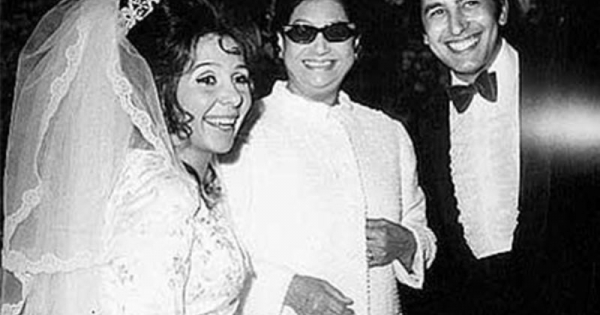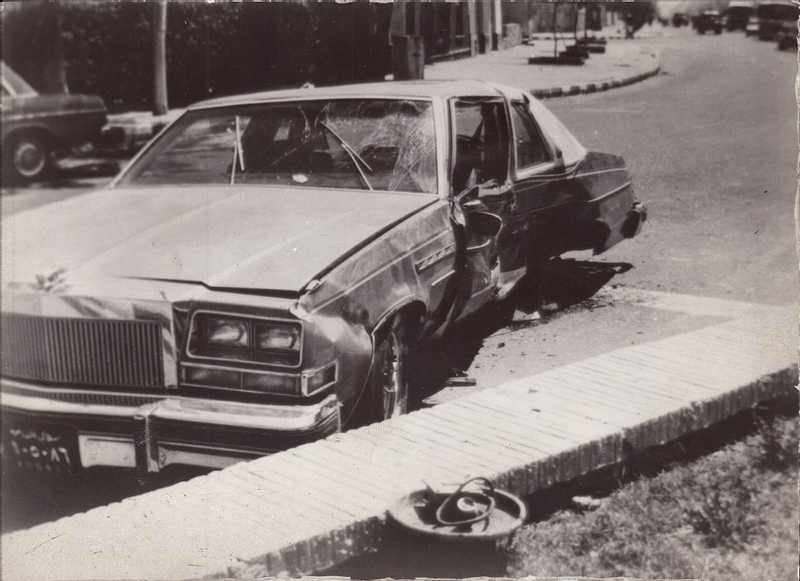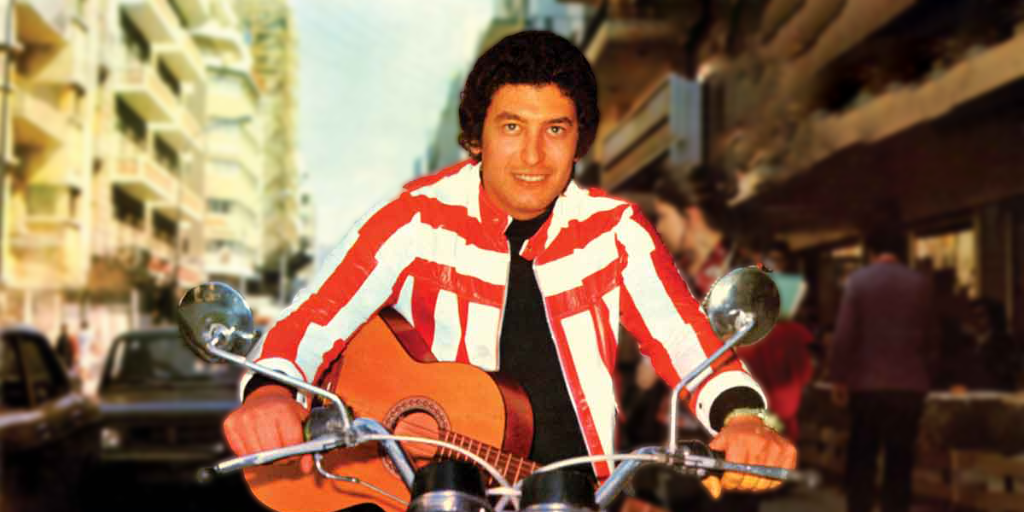Donning his signature velvet black suit, a dazzling smile from cheek to cheek, and slicked-back hair that would have given Elvis a run for his money, there stood a man and his electric guitar. Audiences were entranced by his performance, both on and off-screen. His name was Omar Khorshid, and he was Egypt’s first-ever electric guitarist.
During the post-war era which fused tradition with Westernization, Khorshid’s electric guitar would enthrall Egyptians for decades to come. And, following his death in a mysterious car accident, that same enthrallment would carry on to the conspiracies behind its circumstances.
The Making of Egypt’s Electric Guitar Giant

Khorshid was born into a family of artistry and wealth that almost ensured that he was destined for stardom. His father, Ahmed Khorshid, was an accomplished cinematographer with several connections to Egypt’s celebrity scene, whereas his mother was a socialite. His siblings, including the iconic actress and performer Sherihan, would also follow in the family’s artistic footsteps.
Early into his childhood, Khorshid discovered his passion for music, learning the violin, piano, and classic guitar, eventually reaching the instrument that would turn him into a household name: the electric guitar. A budding instrument and predominantly Western in use, Khorshid’s mastery of the electric guitar was no easy feat.
Khorshid’s electric guitar performances were unlike anything Egypt’s music scene had heard before. He fused the instrument’s Western style of sound with the oriental music of Egypt, ushering in an era of funk-rock that symbolized Egypt’s 1970s. Khorshid became the main event of Egypt’s hippest nightclubs, enchanting crowds with his surf-rock riff mixed with finger-picking skills expected from an oud player.
His main event moments would later turn him mainstream, as Khorshid’s new wave of music would eventually grab the attention of Egypt’s musical titans: Abdel Halim Hafez, Mohamed Abdel Wahab, and Umm Kalthoum – legends who would invite the young blood to perform with them in concerts.

Image Credit: Ein
Khorshid’s star would only shine brighter with the cinematic opportunities that followed his mainstream popularity, turning the guitarist into a full-fledged celebrity. He would become acquainted with Egypt’s most influential circles, making it as far as being a member of President Anwar Sadat’s entourage during a visit to the White House in 1977.
Yet to reach his 40s, Khorshid was already an icon in modern Egyptian culture. His adoring fans were eager for more guitar solos and heartthrob performances in the coming decades. But those hopes were crushed when Khorshid tragically died in a car accident in 1981, aged 36. Sudden and mysterious, Khorshid’s death remains a mystery to this day, as many suspect his death to be more than a mere car accident.
Car Accident or Assassination?
On 29 May 1981, Khorshid was driving at a high speed on El Haram Street in Giza, Egypt with his wife, Dina, a Lebanese businesswoman, and fellow actress Madiha Kamel, when he lost control of the vehicle and collided with a street light pole. The two women suffered from injuries whereas Khorshid’s autopsy determined him dead immediately upon collision.
Khorshid’s death was ruled as a car accident, but it was only after his death that questions over a possible assassination arose. Upon healing from their injuries and shock, Dina later claimed that they were chased by a mysterious car that was determined to make Khorshid’s crash – a claim that gave rise to a number of theories from members of Khorshid’s closest circle.

Image Credit: Alqabas
Etemad Khorshid, the late guitarist’s younger sister, believes that the cause of her brother’s death lies in the hands of former Minister of Information, Safwat El-Sherif, and the abusive relationship he is said to have had with cinematic superstar Soad Hosny.
Hosny was rumored to have worked in espionage for El-Sherif during the Egyptian-Israeli conflict. According to Khorshid’s sister, Hosny, who is a close friend of the guitarist, was allegedly suffering because of El-Sherif’s orders and Khorshid came to her defense, leading to a spat and his eventual death.
Ehab Khorshid, the guitarist’s younger brother, would support this theory in a phone interview on Al Hekaya (The Story) talk show, shortly after El-Sherif’s death in 2021.
One other theory accuses Palestinian freedom fighters of assassinating him due to his role as a member of Sadat’s entourage during peace talks between Egypt, Israel, and the United States.
The late Maha Abou Ouf – who was also married to Khorshid at the time of his death – publicly shared her belief that Khorshid’s death was more than a mere accident during the Kol Youm (Everyday) talk show in 2019. While the actress admitted that she remains unsure of what truly happened, she did recognize the question marks surrounding the accident.
“I did not go to the scene of the accident, but he was supposed to meet me after leaving [near Mena House], but then a friend who was with him called me asking if Omar made it home or not. When I said ‘no’ he called back minutes later to tell me that Omar had been in a car accident and that he was moved to the Anglo-American hospital…but why that hospital? There are several other hospitals much closer to [where he crashed], it doesn’t make sense,” remarked Abou Ouf.
On the other hand, some believe that it was simply a tragedy that took Egypt’s electric guitar giant away. His former bandmate and drummer, Yehia Khalil, expressed disbelief in the conspiracy theories, believing it to be simply a tragic car accident.
Despite the controversy and his untimely death, Khorshid remains an icon for both music and cinema, even 40 years after his passing. His work helped revolutionize music in the Arab world, becoming the first of his kind to push the boundaries of the guitar in Arab music. Khorshid’s legend lives on, both as an inspiration and as a conspiracy case.






Comments (0)